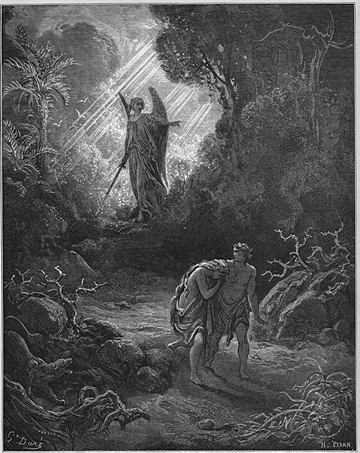1 Timote 2
1 Ko ia ʻoku ou enginaki, ke fuofua fai ʻae kole, mo e ngaahi lotu, mo e hūfekina maʻu, mo e fakafetaʻi, koeʻuhi ko e kakai kotoa pē;
The first (OR, most important) thing that I urge [you to tell your congregation] is that [Christians] should continually ask [God] for [what they need]. They should also pray to God [for all other people], and they should be thanking [God].
2 Koeʻuhi ko e ngaahi tuʻi, pea mo kinautolu kotoa pē ʻoku pule: koeʻuhi ke tau moʻui ʻi he moʻui fiemālie mo e melino, ʻi he angafakaʻotua mo e anga totonu kotoa pē.
Specifically, they should pray for rulers and for all [other people] who (are in important government positions/have authority), in order that [God will help them to rule]. [As God enables the rulers to rule well], we can live very peaceably as we conduct ours lives doing all that God and others consider to be right and proper.
3 He ko e meʻa lelei eni, pea ʻaonga ʻi he ʻao ʻoe ʻOtua ko hotau Fakamoʻui;
It is good [to pray like that, and] it pleases God, who saves us, when we pray like that.
4 ʻAia ʻoku finangalo ke fakamoʻui ʻae kakai kotoa pē, pea ke lavaʻi ʻae ʻiloʻi ʻoe moʻoni.
He desires to save everyone. He wants everyone to fully know [and accept] his true [message].
5 He ʻoku taha pe ʻae ʻOtua mo e fakalaloa pe taha ʻi he vahaʻa ʻoe ʻOtua mo e kakai, ko e tangata ko Kalaisi Sisu;
He is the [only] one [true] God! And there is [only] one person who talks to God on behalf of people. That person is Christ Jesus, who [himself] is a man!
6 ʻAia naʻa ne foaki ʻe ia ia ko e totongi huhuʻi mā ʻae kakai kotoa pē, [ʻaia ]ʻe fakamoʻoni ʻi hono kuonga totonu.
He gave (his [life/himself]) [as a sacrifice] in order to ransom/redeem all [people], which showed at the proper time [that God desires that all people be saved] {[to save all people]}.
7 ʻAia kuo fakanofo au ki ai ko e malanga, mo e ʻaposetolo, (ʻoku ou leaʻaki ʻae moʻoni ʻia Kalaisi, ʻoku ʻikai teu loi; ) ko e akonaki ki he ngaahi Senitaile ʻi he tui mo e moʻoni.
As for me, he appointed me to declare [this message] and to be an apostle. I am telling the truth [about God appointing me]. I am not lying! He appointed me to teach the non-Jews that they should believe God’s true message.
8 Ko ia ko hoku loto ke lotu ʻae kakai ʻi he potu kotoa pē, ʻo mafao atu ʻae nima māʻoniʻoni, ʻo taʻeʻita mo taʻefakataʻetaʻetui.
I desire that in every place [where believers worship], the men who pray publicly [MTY] should be men who are not practicing sin. When they pray, they should not be angry [with anyone] and they should not doubt [that God will answer] their prayers (OR, should not quarrel with anyone).
9 Pea ke pehē ʻae kau fefine foki, ke nau teuʻi ʻaki ʻakinautolu ʻae kofu ʻoku ngali ke ʻai, mo e mata angavaivai mo e anga fakapotopoto; kae ʻikai ʻi he fafatu ʻoe louʻulu, pe ʻi he [ʻai ʻae ]koula, pe ko e mataʻitofe, pe ʻi he teungaʻaki ʻae koloa lahi;
[I would like that] the clothing that women wear be (modest and sensible/proper and appropriate) [DOU]. I want them to not fix their hair in fancy/elaborate ways, nor wear gold [jewelry], nor pearls, nor expensive clothing [in order that they may make themselves attractive].
10 Ka ʻi he ngaahi ngaue lelei ʻaia ʻoku tau mo e kau fefine ʻoku nau fakahā ko e kau lotu ʻakinautolu ki he ʻOtua.
Instead, they should be doing things that women who (claim to/say that they) worship God should do; that is, they should be doing good deeds.
11 Ke tali ʻe he kau fefine ʻae akonaki ʻi he fakalongo pē mo e angavaivai kotoa pē.
Women must learn to [listen] quietly [during the worship services] and to fully subject themselves [to the leaders of the congregation].
12 He ʻoku ʻikai te u tuku ʻae fefine ke akonaki, pe ke faʻao ʻae pule ʻae tangata, ka ke fakalongo pe.
I do not permit women to teach [men spiritual truth publicly], and I do not permit them to have authority over men. Instead, [I desire] that women [listen] quietly [during the worship services].
13 He naʻe fuofua ngaohi ʻa ʻAtama, kae ʻi mui ʻa ʻIvi.
Keep in mind that God made Adam first, and afterwards he made Eve,
14 Pea naʻe ʻikai kākāʻia ʻa ʻAtama, ka ko e fefine naʻe kākāʻia pea tō ia ki he talangataʻa.
and that it was not Adam whom [Satan] deceived. As a result of the woman being deceived, she sinned. She did what God had told her not to do.
15 Ka neongo ia ʻe fakamoʻui ia ʻi he fānau, ʻo kapau ʻe tuʻumaʻu ʻakinautolu ʻi he tui mo e ʻofa mo e māʻoniʻoni mo e anga fakapotopoto.
But even though she did that, now women will be saved {God will accept women} as they bear children if they continue to trust [God] and if they continue to love others, and if they continue to live in a way that is [more and more] (acceptable to God/like God wants them to), and if they continue to be modest.





















